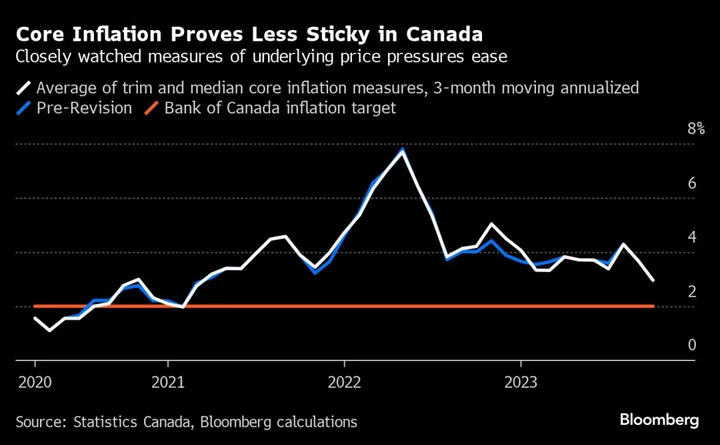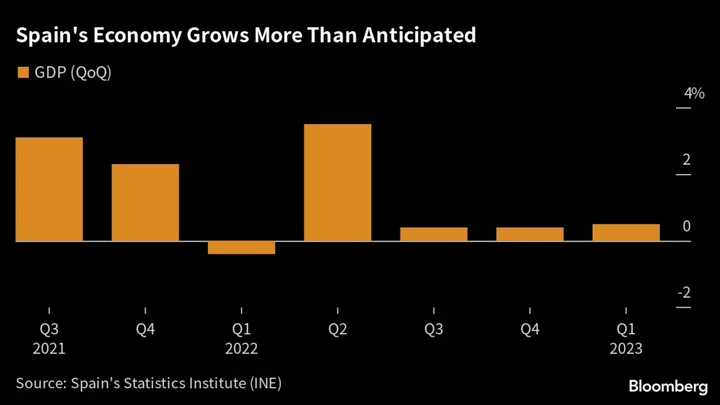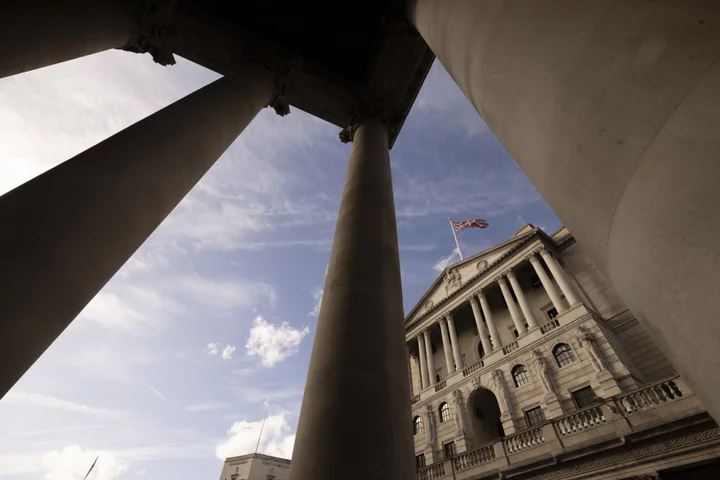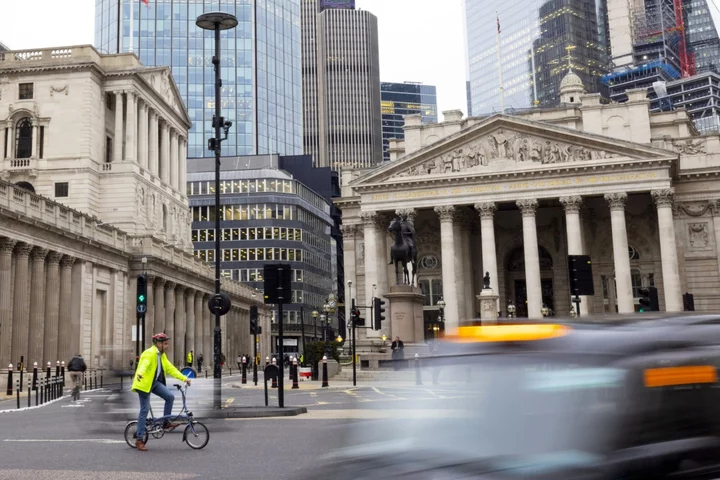Bank of Canada Governor Tiff Macklem said policymakers may have done enough to tame inflation, reinforcing market and economist expectations that short-term rates have peaked.
In his first speech since leaving the bank’s overnight rate unchanged at 5% in October, Macklem said the economy is expected to remain weak for the next few quarters, which means “more downward pressure on inflation is in the pipeline.”
“This tightening of monetary policy is working, and interest rates may now be restrictive enough to get us back to price stability,” he said, reiterating the central bank is prepared to raise rates again “if high inflation persists.” Bonds rallied after the release of the speech text, taking the yield on the Canada two-year note down to about 4.4%.
Macklem’s remarks came a day after the latest data showed consumer prices rose 3.1% in October over a year earlier, the slowest pace since June. A key metric for underlying inflation pressures that policymakers are closely tracking also slowed to below 3%.
His comments suggest the Bank of Canada has more confidence that inflation will continue to decelerate as the economy slows, allowing policymakers to keep rates steady. Officials are expected to hold again when they next set rates in two weeks, and markets and economists see the central bank easing monetary policy by mid-2024.
“The economy is approaching balance,” Macklem said Wednesday in Saint John, New Brunswick.
Importantly, Macklem suggested Canada’s weakening economy points to a normalization of corporate pricing behavior, a key inflation risk the central bank says it’s closely watching.
“The excess demand in the economy that made it too easy to raise prices is now gone.”
‘Common Enemy’
Still, wage growth and short-term inflation expectations remain primary concerns.
“We want to see expectations decline to be reassured we are headed back to our 2% target,” he said. “With higher inflation in the last couple of years, we’re seeing more strikes as employers and workers struggle to reconcile rising costs on each side.”
Economists expect wage growth and expectations to normalize in coming months. Last month, wage growth slowed to 5%, while the jobless rate rose to 5.7% as population gains outpaced employment growth.
“The past two years have been a painful reminder of how much high inflation hurts households, businesses and communities,” he said. “It’s our common enemy. We want to see high inflation defeated.”
In a briefing following his speech, the governor said Prime Minister Justin Trudeau’s government didn’t significantly change the deficits projected for the current and next fiscal years when they updated their budget on Tuesday, which Macklem said would be “helpful as we work to get inflation down over next year and into 2025.”
Responding to a question about a split in opinion among policymakers over whether to hold or raise rates on October 25, Macklem said while there was a discussion of a possible hike, all members agreed to keep borrowing costs unchanged.
Macklem reiterated it’s still too early to think about rate cuts, and that policymakers still need to see clear evidence inflation is sustainably on a path toward the target before they consider cutting borrowing costs.
(Updates with the governor’s comments from the briefing in the final three paragraphs.)
Author: Randy Thanthong-Knight and Erik Hertzberg









